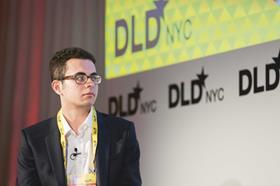I am prompted to a consideration of parent-child partnerships which have had an impact on the law by a modest success of my own this week. I was shortlisted with my daughter for the Jonathan Cape/Observer/Comica graphic short story prize (all kudos belong to my daughter, who designed and drew the entry – I merely provided the words – and we didn’t win).
I believe that the parent-child combination with the most impact on the law is, curiously, of two non-lawyers: Bill (father) and Joshua (son) Browder. Their stories are well-known.
In a nutshell, the father was an investment adviser in Russia, whose company was a victim of Russian criminality and corruption. He was expelled, but his lawyer, Sergei Magnitsky, was tortured and killed in a Russian prison. As a result, the father, Bill Browder, lobbied in the US for the passing of the Magnitsky Act, which freezes assets and bans visas for those who killed Magnitsky as well as for other Russians involved in serious human rights abuse.
President Putin was furious (Bill Browder accuses him of being involved in the whole revolting business), and Russia has continued to respond violently, with death or accidents at home in Russia, and lobbying abroad. You can read Bill Browder’s chilling account of events in his recent testimony to the US Senate Judiciary Committee.
The ramifications of the Magnitsky Act continue to reverberate. For instance, the UK passed a Magnitsky amendment to its own Criminal Finances Act 2017, which came into force just a few weeks ago. The amendment expands civil recovery powers for unlawful conduct to property obtained by or in connection with a gross human rights abuse. The Act explicitly widens the definition of unlawful conduct to include activity outside the UK which would be an offence if committed in the UK. The amendment is retrospective (with a time bar for recovery of 20 years after the abuse).
Canada has also just passed its own Magnitsky Act. The infamous meeting between President Trump’s son and others with a Russian lawyer last year had, among other things, the Magnitsky Act as its focus.
The most recent contribution of Bill Browder to the law has been in highlighting Russia’s abuse of the Interpol alert system. Russia had attempted four times without success to place him on a criminal watch-list through Interpol, and just a few days ago, taking advantage of a loophole, the Russians finally coaxed Interpol to issue a similar alert shortly after Canada passed its Magnitsky legislation. Browder – who used to be a US citizen, but is now British - immediately tweeted that he had been notified by the US State Department that his ESTA waiver had been cancelled. But he was soon victorious again, after much criticism of the US decision, and by the next day, his ESTA had been restored.

Bill Browder has made a brave and major contribution to the law in several countries against impunity for human rights abuses, and has also thrown a light on the workings of Interpol. In case you think such effective political activism is unusual in an investment adviser, it is interesting to know that Bill Browder’s grandfather, Earl Browder, was general secretary of the Communist Party USA during the 1930s and first half of the 1940s, and ran for US President twice, in 1936 and 1940. It is claimed that he was Russia’s candidate in those elections, and, if so, it is a strange twist that the grandson has played a role in exposing Russia’s role in the last US election. Russia has clearly been a powerful player in both the grandfather’s and Bill Browder’s lives.
As for the son (Joshua), he is the creator of the famous DoNotPay chatbot to help clients with parking tickets, and other chatbots besides. He regularly breathes fire about how he will put lawyers out of business, but those threats have yet to materialise, since his chatbots are still rather basic. Time will tell whether chatbots will have the far-reaching effect that he predicts.
If you think it odd that the son of an investment adviser, and the great-grandson of the general secretary of the Communist Party USA, is such a whizz computer coder, that is because there is another generation. Bill Browder’s father and two uncles were all distinguished mathematicians. Bill Browder’s father was born in Russia during his father, Earl’s, stay there. He was a child prodigy in mathematics, and received his doctorate at 20 from Princeton. Unsurprisingly, during the McCarthy years, he had problems finding work because of his own father’s history.
There may be other parent-child combinations which have had an impact on the law, but for those who are currently active, I think it would be hard to beat Bill and Joshua Browder.
Jonathan Goldsmith is Law Society Council member for EU matters and a former secretary general of the Council of Bars and Law Societies of Europe. All views expressed are personal and do not necessarily reflect the views of the Law Society Council



























No comments yet